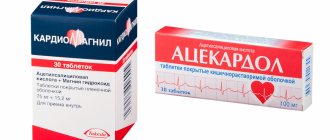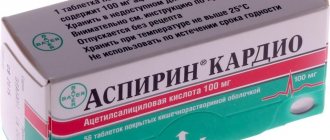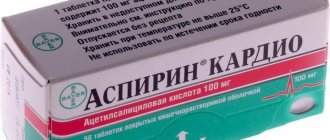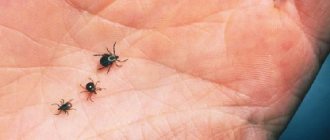The drug colchicine (colchicina lirca) belongs to the group of alkaloids. The main component in its composition is isolated from the herbaceous plant Colchicum splendid. The drug is most widely used in the treatment of gout. According to reviews, it quickly relieves pain. But at the same time, the medicine can provoke many negative reactions in the body, so it can only be used as prescribed by a doctor.
Features of the drug
Colchicine, which affects uric acid metabolism, is produced on a plant basis. The active ingredient of the same name in the drug is isolated from Colchicum splendid. This herbaceous plant has been used in folk medicine for a long time to reduce joint pain and prevent the progression of inflammatory processes.
The drug is produced in tablet form. They are most often white, but sometimes have a slightly yellowish tint. Round, biconvex tablets are scored, which makes it easier to adhere to the prescribed dosage.
The medicine has analgesic and anti-inflammatory effects. After taking it, it is possible to quickly stop an acute attack of gout. In addition, the active substance delays the deposition of uric acid microcrystals in tissues.
Colchicine Lyrca
Registration number: LP-006678
Trade name: COLCHICINE LIRA
International nonproprietary or generic name: colchicine
Dosage form: tablets
Composition per 1 tablet: Active ingredient:
- Colchicine 1.0 mg
Excipients:
- Lactose monohydrate 49.0 mg
- Sucrose 20.0 mg
- Acacia gum 4.0 mg
- Magnesium stearate 1.0 mg
Description: round biconvex tablets of white or light yellow color with a score
Pharmacotherapeutic group: anti-gout drug
ATX code: M04AC01
Pharmacological properties: The anti-gout effect of colchicine is associated with a decrease in the migration of leukocytes to the site of inflammation and inhibition of phagocytosis of microcrystals of uric acid salts. It also has an antimitotic effect, suppresses (fully or partially) cell division at the stage of anaphase and metaphase, and prevents degranulation of neutrophils. By reducing the formation of amyloid fibrils, it prevents the development of amyloidosis. Highly effective for relieving acute gout. In the first 12 hours of therapy, the condition improves significantly in more than 75% of patients. In 80%, it may cause adverse reactions from the gastrointestinal tract (GIT) before or simultaneously with clinical improvement. A daily dose of 1-2 mg when taken daily in 3/4 of patients with gout reduces the likelihood of developing repeated acute attacks. Prevents acute attacks in patients with familial Mediterranean fever (reduces the activity of dopamine beta-hydroxylase). Increases the life expectancy of patients with primary hypertension amyloidosis. Has a positive effect on the skin (softening, reducing dryness) with systemic scleroderma.
Pharmacokinetics: Colchicine is rapidly and intensively absorbed from the gastrointestinal tract. The average maximum plasma concentration is 4.2 ng/ml and is achieved approximately 70 minutes after administration of a 1 mg dose. The half-life is 9.3 hours. Colchicine quickly penetrates tissues and has a high volume of distribution of 473 liters. High concentrations of colchicine are found in the liver, kidneys, spleen, leukocytes and gastrointestinal tract. Colchicine is metabolized in the liver and is excreted primarily in bile. Enterohepatic circulation is detected 4-6 hours after oral administration. The largest part of the administered dose is excreted through the intestines and about 23% through the kidneys.
Indications for medical use: - acute attacks of gout; - periodic disease (familial Mediterranean fever).
Contraindications: - hypersensitivity to the active substance or any of the excipients; - intolerance to lactose, fructose, deficiency of lactase, sucrase/isomaltase, glucose-galactose malabsorption (contains lactose, sucrose); - acute heart failure, liver and/or kidney failure, severe dysfunction of the gastrointestinal tract, severe inhibition of bone marrow hematopoiesis; - Colchicine is contraindicated in patients with kidney or liver damage who are taking P-glycoprotein inhibitors or the CYP3A4 enzyme; - pregnancy and breastfeeding; - children under 18 years of age. Colchicine should be prescribed with extreme caution to elderly and debilitated patients, especially those suffering from diseases of the kidneys, gastrointestinal tract and heart, and patients with cachexia. When prescribing to patients with diabetes, it is necessary to take into account that the drug contains sucrose and lactose.
Use during pregnancy and breastfeeding: Taking the drug during pregnancy and breastfeeding is contraindicated.
Directions for use and dosage: For oral administration. The tablet can be swallowed whole or split in half along the score line to produce a single dose of 0.5 mg. In case of an acute attack of gout, take 1 mg of colchicine (1 tablet), then 0.5 -1.5 mg every 1-2 hours until the pain subsides. The total dose of the drug taken per day should not exceed 8 mg. Re-appointment according to the treatment regimen for an acute attack of gout can be carried out no earlier than after 3 days. To prevent acute attacks of gout in the first few months of treatment with uricosurics, take 0.5 - 1.5 mg daily or every other day for (usually) 3 months.
Side effects: The frequency of adverse events is classified as follows: very often (>1/10), often (>1/100 to <1/10), infrequently (>1/1000 to <1/100), rarely (>1/100) 10000 to <1/1000), very rare (<1/10000), unknown (cannot be determined from available data). Hematopoietic and lymphatic system disorders: Uncommon: leukopenia. Rarely: thrombocytosis, nosebleeds, bone marrow diseases (aplastic or hemolytic anemia, pancytopenia, neutropenia, thrombocytopenia, agranulocytosis). Nervous system disorders: Very rare: peripheral motor neuropathy. Gastrointestinal disorders: Common: nausea, vomiting, diarrhea, abdominal pain. Unknown: profuse diarrhea, gastrointestinal bleeding. Liver and biliary tract disorders: Unknown: hypertransaminasemia, liver damage. Renal and urinary tract disorders: Not known: kidney damage. Skin and subcutaneous tissue disorders: Uncommon: alopecia. Rarely: allergic rash, vesicular bullous rash, hemorrhagic rash, redness of the skin, swelling. Unknown: allergic rash. Skeletal muscle and connective tissue disorders: Uncommon: myotonia, muscle weakness, myopathy, muscle pain, acute skeletal muscle necrosis. Disorders of the genital organs and mammary gland: Rarely: azoospermia, oligospermia.
Overdose: Acute intoxication has been observed in adults after taking a dose of about 20 mg and in children after taking a dose of 5 mg. Chronic toxicity may occur in patients with gout after taking a total dose of 10 mg or higher over several days. Since colchicine has antimitotic activity, organs that are characterized by a high proliferation rate are more often affected. Symptoms of colchicine intoxication. Approximately 2 to 6 hours after ingestion of a toxic dose, burning and soreness in the throat and mouth, urge to vomit and difficulty swallowing, nausea, thirst and vomiting are noted, and after that - urge to urinate and defecate, tenesmus and colic (usually , in malnourished patients). Muco-watery and/or hemorrhagic diarrhea may lead to loss of fluid and electrolytes, resulting in the development of hypokalemia, hyponatremia and metabolic acidosis. Often patients complain of both tightness and pain in the heart area. Subsequently, pallor, decreased body temperature, cyanosis and dyspnea are observed. The development of tachycardia and arterial hypotension (up to collapse) is possible. Neurological disorders manifest themselves in the form of decreased sensitivity, seizures and symptoms of paralysis. Death is possible in the first three days due to cardiovascular failure and respiratory paralysis. 1 - 2 weeks after treatment of intoxication, complete, sometimes long-term alopecia may be observed. In some cases, dysfunction of the kidneys, lungs and liver was observed. Rare cases of blindness have been reported. Treatment of intoxication. Treatment is carried out in a poison control center. There is no specific antidote. Hemodialysis is ineffective. Gastric lavage, control of the airway, auxiliary ventilation, monitoring and maintenance of vital functions, normalization of blood gas composition, electrolyte balance, and anti-shock measures are necessary. Treatment is symptomatic, aimed at stabilizing and maintaining the cardiovascular system and basic vital functions: infusion therapy, cardiac glycosides to maintain myocardial contractility if necessary. For abdominal cramps, atropine, papaverine or tannalbine are prescribed. Opiates should not be used.
Interaction with other drugs: In combination with cyclosporine, especially in patients with impaired renal function, the likelihood of developing myopathy increases. Enhances the effect of depriming and sympathomimetic drugs. Interferes with the absorption of cyanocobalamin. Nonsteroidal anti-inflammatory drugs and other drugs that cause myelosuppression increase the risk of developing leukopenia and thrombocytopenia. Anti-gout activity is reduced by cytostatics (increasing the concentration of uric acid) and drugs that acidify urine and alkalize the effect. Colchicine can be used in combination with allopurinol and uricosuric drugs.
Special instructions: When using Colchicine, it is very important to follow the recommended dosage. Treatment must be carried out under close hematological and clinical supervision. If severe side effects from the gastrointestinal tract occur, the dose should be reduced or the drug discontinued. If the number of leukocytes decreases below 3000/μl and platelets below 100,000/μl, the intake is stopped until the blood picture normalizes. Colchicine should be prescribed with extreme caution to elderly and debilitated patients, especially those suffering from kidney, gastrointestinal and cardiac diseases. If weakness, anorexia, nausea, vomiting or diarrhea occurs, the dosage should be reduced or discontinued, as this may be the first signs of intoxication. Clarithromycin: Post-marketing cases of colchicine toxicity have been reported during concomitant use of colchicine and clarithromycin, especially in elderly patients; some of these cases have occurred in patients with renal failure. Deaths of some of these patients have been reported. If it is necessary to take colchicine concomitantly with clarithromycin, the patient should be closely monitored to avoid the development of clinical symptoms of toxicity caused by colchicine. Colchicine contains lactose and sucrose: Patients suffering from rare genetic diseases including galactose intolerance, fructose intolerance, lactose or sucrase-isomaltase intolerance, glucose-galactose malabsorption should not take this drug. Effect on the ability to drive vehicles and machinery The drug does not affect the ability to drive vehicles or engage in other potentially hazardous activities that require increased concentration and speed of psychomotor reactions.
Release form: Tablets, 1 mg. 30 tablets in a blister made of opaque polyvinyl chloride film and aluminum foil. One, two or three blisters along with instructions for use are placed in a cardboard pack.
Storage conditions: Store at a temperature not exceeding 25 °C. Keep out of the reach of children.
Shelf life: 5 years. Do not use the drug after the expiration date.
Conditions of release: Dispensed by prescription.
Legal entity in whose name the registration certificate was issued/Organization receiving consumer complaints: CJSC "Moscow Pharmaceutical Factory" Russia, 125329, Moscow, Pharmaceutical proezd, 1 tel., fax www.mosfarma.ru
The production of the drug is carried out on the basis of a licensing agreement between ACARPIA Pharmaceutical S.r.l., Via Vivaio, 17 20122, Milan, Italy and Moscow Pharmaceutical Factory CJSC, Russian Federation.
Manufacturer/packer (primary packaging): Haupt Pharma Amareg GmbH Donaustaufer Str. 378, 93055 Regensburg, Germany.
Manufacturer/packager (secondary (consumer) packaging): CJSC "Moscow Pharmaceutical Factory" Russia, 125329, Moscow, Pharmaceutical proezd, 1 tel., fax www.mosfarma.ru
Main indications
The drug colchicil is most often prescribed for the treatment of gout. This disease is characterized by acute joint pain due to impaired uric acid metabolism and the deposition of urate in tissues. The drug is indicated for relieving pain during exacerbation of the disease and slowing its progression.
In addition, colchicil is used, the instructions for use focus on this, for the treatment of other pathologies:
- Amyloidosis, when a complex protein-polysaccharide compound, amyloid, is deposited in tissues. This leads to malfunctions in almost all systems and organs in the body.
- Inflammatory diseases in otorhinolaryngology and dentistry.
- Mediterranean fever, which is a hereditary disease and is associated with the deposition of amyloid in tissues. The main symptom is a periodic sudden increase in body temperature and severe chills.
- Phlebitis. In this case, inflammation of the venous wall occurs against the background of pathologies of an infectious and inflammatory nature.
- Scleroderma. The disease is characterized by the appearance of scar tissue on the skin and internal organs.
- Chondrocalcinosis. In pathology, calcium pyrophosphate crystals are deposited in the area of the articular cartilage and bursa, which causes pain.
Colchicine tablets, instructions for use (Method and dosage)
The tablets are taken orally.
Inflammatory process, gout : on the first day of therapy 3 times a day, 1 mg; on the second and third days of therapy, a double dose of 1 mg is prescribed; from the fourth day of treatment, 1 mg in the evening is indicated. Treatment is possible according to an alternative regimen: an initial dosage of 1 mg, then switch to taking 0.5-1.5 mg, the interval between doses is 2 hours until the pain disappears.
Prevention of gout : take 1 mg in the evening for three months, effective for gout without tophi. No more than 8 mg per day.
According to the instructions for use of Colchicine, the duration of therapy for amyloidosis is 5 years, 1-1.5 mg per day is taken daily.
Contraindications for use
Colchicil should not be taken if you are hypersensitive to any component of the drug. This means that you need to carefully study what ingredients were used in the production of the tablets.
The drug is not prescribed for severe pathologies of the digestive system. Contraindications also apply to neutropenia, when the blood formula is disturbed. Elderly patients should be treated with colchicil with caution. You should not take the medicine in the following cases:
- Confirmed alcoholism.
- Presence of purulent infections.
- Bone marrow pathologies.
- Liver and kidney diseases.
Due to possible negative effects on the fetus, colchicil is not prescribed, the instructions confirm this, during pregnancy. The drug is contraindicated for patients undergoing hemodialysis treatment. No studies have been conducted on the effect of colchicil on a newborn baby during breastfeeding, so it is better not to use it for treatment.
Colchicine price, where to buy
In Moscow, as well as throughout Russia (in St. Petersburg, Novosibirsk and other cities), the drug is very difficult to find. You can sometimes find this medication in large and specialized pharmacies in Moscow and St. Petersburg; we recommend calling large pharmacy chains in advance to find out about the availability of the medication.
Large online pharmacies do not sell this product. You can buy medicine at your own risk using advertisements on the Internet, however, you should remember that the product sent may turn out to be a fake or may not be sent at all. The price of the package is very high and amounts to at least 2000 rubles.
In Ukraine (Kyiv, Odessa, Kharkov, and other cities) the medicine is sold. The price of Colchicine in Ukraine is about 500 hryvnia for a package of 40 tablets.
- Online pharmacies in RussiaRussia
Possible adverse reactions
Colchicil, the price of which is quite reasonable, as confirmed by reviews and manufacturers warn, has many side effects. This means that you cannot make a decision about drug treatment on your own.
Most often, when taking the drug, negative reactions from the digestive system are observed. These are various dyspeptic disorders: nausea, vomiting, diarrhea, etc. Such symptoms are accompanied by abdominal pain. Additionally, various problems arise with the functioning of the urinary system.
Less commonly, other side effects occur during treatment with the drug:
- The functioning of the hematopoietic system is disrupted. In severe cases, with long-term use, agranulocytosis develops.
- Dermatological reactions occur. In severe cases, long-term use causes alopecia.
Drinking alcoholic beverages can cause serious side effects.
Interaction
The likelihood of developing myopathy increases in patients with pathology of the renal system while taking Cyclosporine .
Colchicine can be taken in combination therapy with uricosuric medications and Allopurinol .
The drug enhances the effectiveness of sympathomimetic and depressive agents.
Colchicine interferes with the absorption process of Cyanocobalamin .
Thrombocytopenia and leukopenia develop when taking NSAIDs and medications that cause myelodepression .
Drugs that acidify urine and cytostatics reduce the anti-gout activity of the drug. The opposite effect is recorded when taking alkalizing agents.
Overdose
An overdose of the drug manifests itself with obvious signs within a couple of hours after taking it. Severe vomiting and diarrhea occur, severe abdominal pain and cramps occur. Against the background of negative symptoms, the person’s general condition worsens.
It is difficult to indicate the specific amount of a drug that can provoke an overdose. This depends on the patient's condition and age. That is why the doctor prescribes doses for the treatment of certain pathologies. As a rule, they are minimal for patients with stomach, kidney and liver problems, as well as for the elderly. It is advisable to undergo an examination to assess the condition of the body before taking colchicil.
There is no specific antidote to stabilize the condition in case of overdose. Therefore, symptomatic treatment in a hospital setting is indicated. The condition can be improved by gastric lavage; hemodialysis is not effective. In severe cases, therapy may be needed to maintain respiratory function and control the functioning of the cardiac system.
Drinking alcoholic beverages can cause serious side effects. Also, when treated with colchicil, a deterioration in the speed of reactions may be observed, so it is better to avoid driving vehicles.









